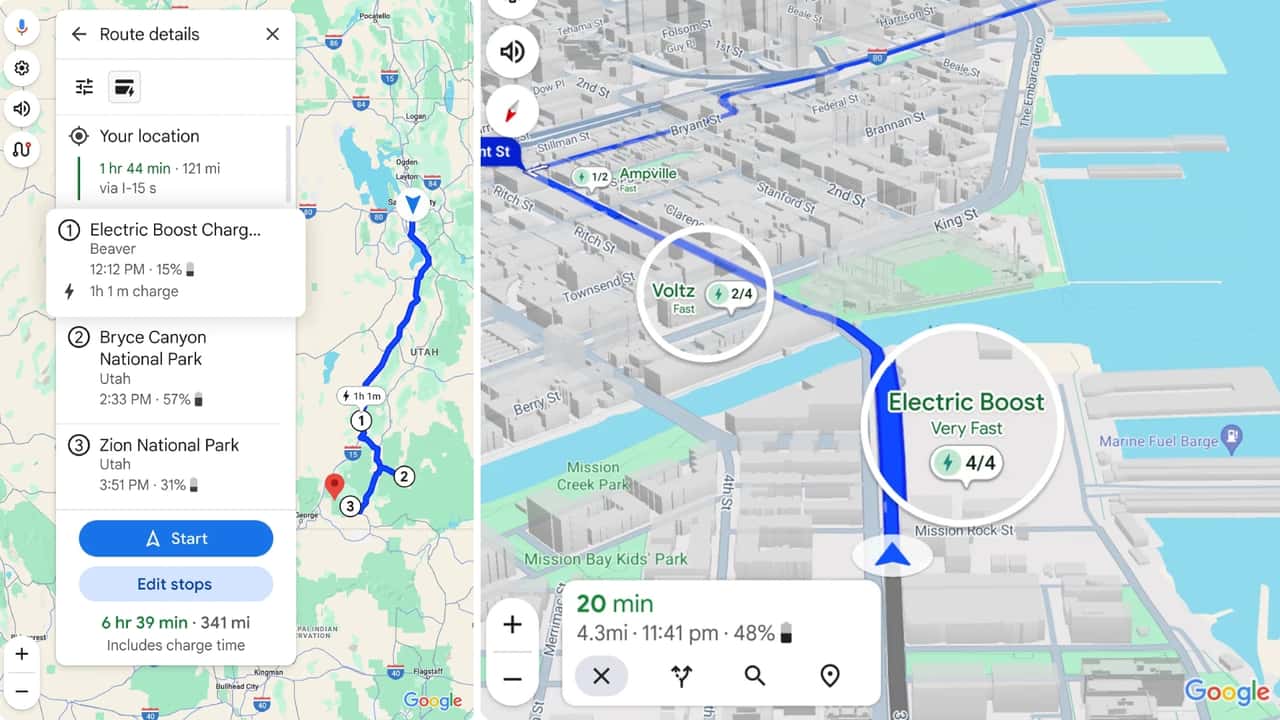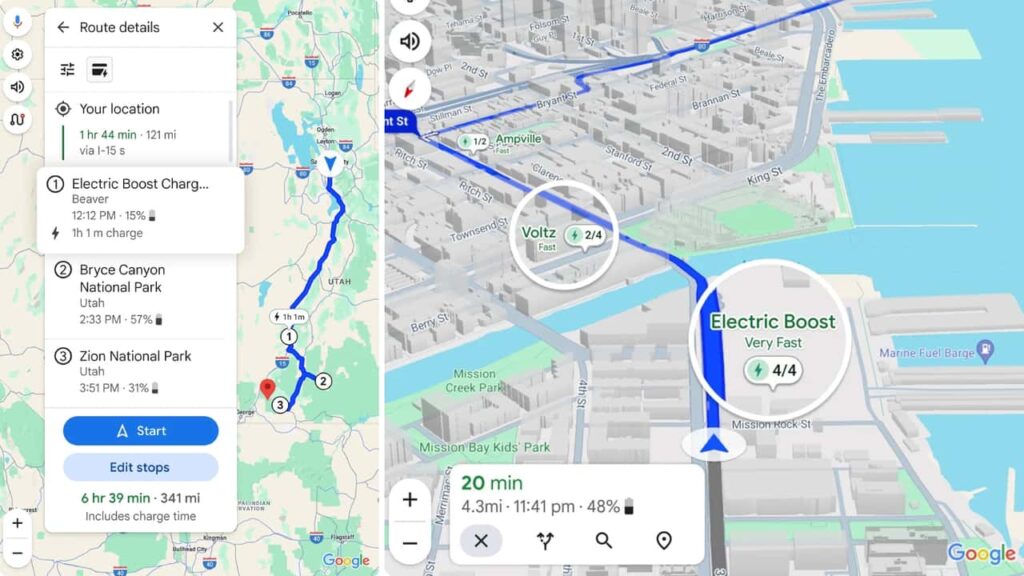Google Maps is introducing an artificial intelligence (AI) upgrade that could significantly improve the experience for electric vehicle (EV) owners by optimizing search and navigation at EV charging stations. This new feature, announced yesterday by Google, aims to address one of the most important concerns among EV drivers: the availability and accessibility of charging stations.

Image Source: insideevs.com
The innovative upgrade uses AI to analyze multiple factors that influence charging station availability, including current usage, queue times, and specific station occupancy trends. It then integrates this data with real-time traffic information to recommend the best routes and charging stops. This AI-powered approach is designed to reduce the uncertainty and wait times that many EV drivers are currently facing.
This update is part of Google’s broader initiative to support sustainable transportation options and reduce environmental impact. It includes advanced features that not only guide users to the nearest available charging station, but also suggest the optimal time to charge, taking into account the expected length of the charging session and the potential demand at each station.
In addition to routing optimization, the AI upgrade provides personalized recommendations based on the user’s previous behavior and preferences. For instance, if a driver frequently visits fast-charging stations, Google Maps will prioritize similar stations in its suggestions.
Initial feedback from users who have tested the new feature has been overwhelmingly positive. “It’s a game changer,” says Eric Johnson, owner of EV in San Jose. “The app now directs me to the nearest charger and tells me if I need to wait to charge. Driving an EV takes away a lot of stress.”
The rollout of this AI-enhanced feature begins in major US cities where EV usage is highest, such as San Francisco, Los Angeles, and New York, with plans to expand to Europe and Asia by the end of the year.
This upgrade underlines Google’s commitment to enhancing the user experience through technology, especially at a time when the adoption of electric vehicles is accelerating globally. By addressing some of the practical challenges associated with EVs, Google Maps is helping pave the way for a more sustainable future in transportation.
